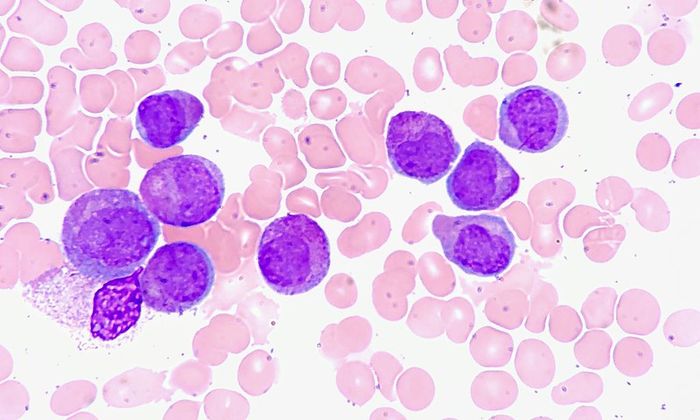The age of anti-ageing
With miracle treatments, lifestyle tips and advice on how to prevent ageing being more prominent than ever, Clodagh Bottomley explains the science of ageing, as presented by Dr Andrew Steele

For as long as humans have lived (and died), the notion of immortality has captivated writers, poets, entrepreneurs and scientists. With the backing of tech billionaires like Jeff Bezos, our knowledge of ageing biology is now expanding so rapidly that what has remained fiction for centuries is becoming a reality.
The latest exploration into longevity research is ‘controlled reprogramming’, specifically of our epigenome. The term ‘epigenome’ is derived from ‘epi’, the Greek for ‘above’, and describes chemical changes to our DNA and DNA-associated proteins. These changes are responsible for altering gene expression patterns, but do not affect the underlying DNA sequence. This explains why cells in our body can have distinct properties and functions, despite containing identical genes. Epigenetic changes can also explain ageing (or so Bezos hopes), hence reversing epigenetic changes may be the key to reversing ageing altogether.
“The ability to treat ageing is akin to curing cancer, heart disease and Alzheimer’s all at once”
The basis of controlled reprogramming relies on Yamanaka factors - four transcription factors that can be used to remodel the epigenome of a differentiated cell, such as a skin cell, and return it to an undifferentiated state. Ten years after Shinya Yamanaka received the Nobel prize for his discovery of these eponymous factors, a Silicon Valley startup, Altos Labs, has placed a three billion-dollar bet on the ability of three of these factors to reverse ageing. And they’ve enlisted Yamanaka himself as their Senior Scientific Advisor, working alongside prestigious board members including Jennifer Doudna, 2020 Nobel Laureate, and Wolf Reik from the Cambridge Institute of Science.
Will their bet pay off? Author and scientist Dr Andrew Steele remain unconvinced. Whilst Steele does not doubt that we will see anti-ageing treatments in the near future, he is hesitant to name Altos Labs as their source. In his recent talk to Cambridge BioSoc, he described the ten hallmarks of the ageing process, of which epigenetic changes are only one. Other hallmarks include the accumulation of senescent (basically old and useless) cells and the shortening of telomeres, caps on the end of our chromosomes that are degraded each time a cell divides. The net result of all these hallmarks, including epigenetic modifications, is the manifestation of ageing in the form of cancer, heart disease, wrinkles, memory loss, diabetes, and general decline. The premise that three simple transcription factors, the Yamanaka factors, could prevent all this suffering might just be too good to be true.
“10 years after the discovery of four Yamanaka factors, a Silicon Valley startup has placed a three billion dollar bet on the ability of three of them to reverse ageing”
In his talk, Steele mentioned examples of age-related changes that can’t necessarily be reversed by controlled reprogramming. One example is collagen, an extremely long-lived protein that is replaced very slowly, if at all. Collagen and similar proteins form an extracellular matrix that is vital for maintaining the integrity of nearby cells. Rejuvenating these cells without repairing the extracellular matrix would leave cells unsupported, proving a futile effort. Dr Steele, therefore, argues that “if reprogramming works, it might be that other treatments are needed in combination with it to realise its true potential, and it would be a great shame if we’ve failed to develop them in the meantime.”
Steele says, “If I was a billionaire, I’d definitely put some money towards reprogramming cells—but I’d also invest in research into the other hallmarks of ageing too.”
The pursuit of anti-ageing medication has become a race, and the stakes are high. Altos Labs is not the first, or the only, Silicon Valley start-up to enter. It has been preceded by Calico, which was founded in 2013 with the backing of Google, and Fountain Therapeutics, among others. Bezos must have heard Steele’s advice because Altos Labs isn’t the only anti-ageing start-up he’s invested in. Another longevity start-up backed by Bezos is Unity Biotechnology, developing drugs to treat a different hallmark of ageing, senescent cells.
Silicon Valley billionaires are not just investing in longevity in an attempt to extend their lifetime. Jim Mellon has called longevity the ‘greatest investment opportunity of all time’, but it’s also the greatest healthcare opportunity. The ability to treat ageing is akin to curing cancer, heart disease and Alzheimer’s all at once, which is why public funding into longevity research must also increase. Yes, the thought of an ageless world is scary. Petrifying, really. But is fear a good enough reason to accept generations of people suffering from the disease of ageing?
 Comment / Cambridge students are too opinionated 21 April 2025
Comment / Cambridge students are too opinionated 21 April 2025 Comment / Cambridge’s tourism risks commodifying students18 April 2025
Comment / Cambridge’s tourism risks commodifying students18 April 2025 Interviews / Meet the Chaplain who’s working to make Cambridge a university of sanctuary for refugees20 April 2025
Interviews / Meet the Chaplain who’s working to make Cambridge a university of sanctuary for refugees20 April 2025 News / News in brief: campaigning and drinking20 April 2025
News / News in brief: campaigning and drinking20 April 2025 Lifestyle / Which coffee are you?20 April 2025
Lifestyle / Which coffee are you?20 April 2025






